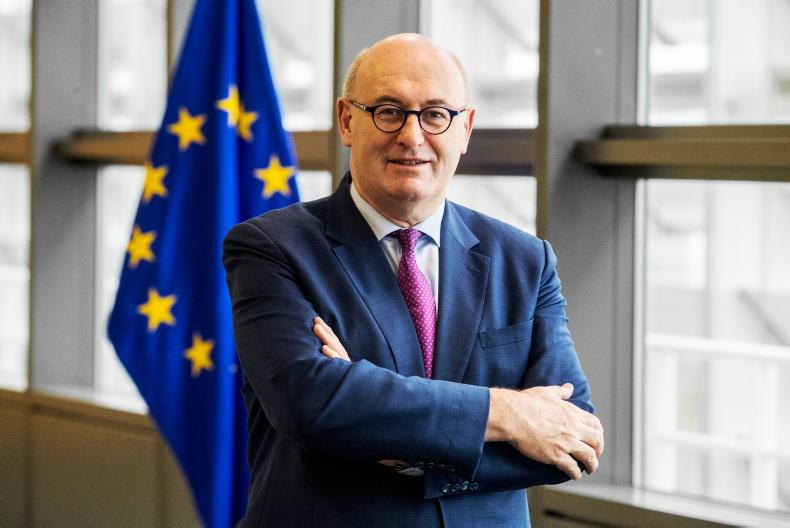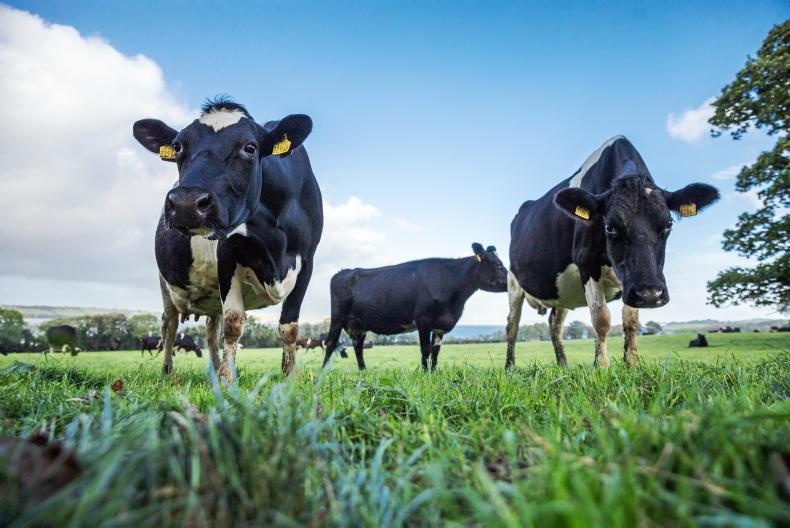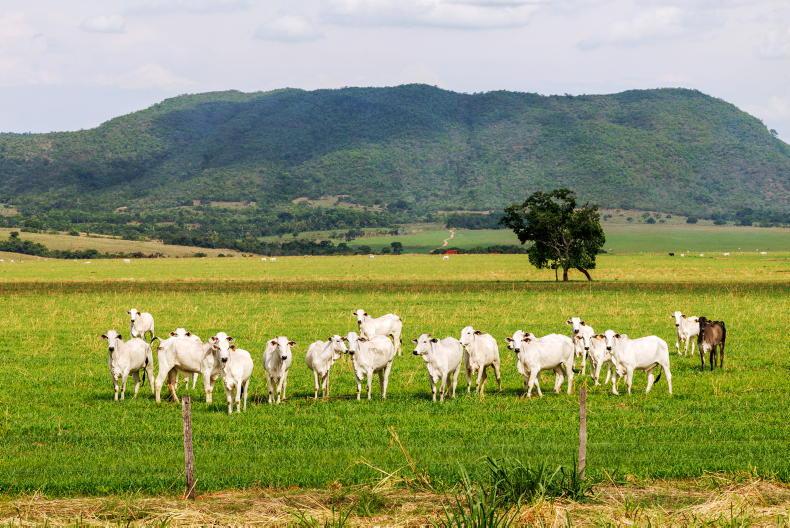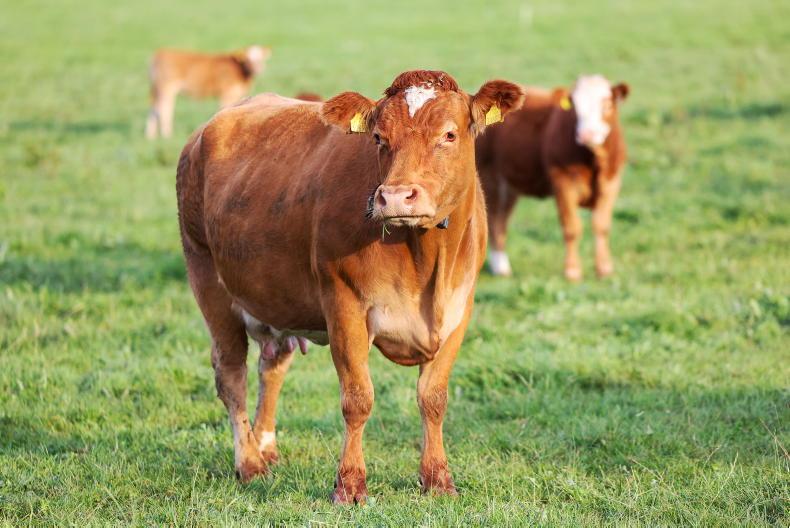Before he had to resign because of the “Golfgate” issue in August 2020, Phil Hogan had just started his second term as Irish commissioner with the trade portfolio.
He had been in that position for a matter of months but prior to that he had served a full term as European Commissioner for Agriculture.
Before Brussels, Hogan was Minister for Environment, Community and Local Government when the Fine Gael/Labour government came into power in 2011 and he also served as Minister for State in the Department of Finance in 1994-95.
He was TD for Carlow-Kilkenny from 1989 until he was appointed commissioner in 2014.
Even in the agriculture portfolio, Hogan was immersed in trade with the Mercosur trade deal being the highest profile deal concluded in his term.
He was also particularly active in the promotion of EU agricultural produce around the world and was probably the most travelled European Commissioner for Agriculture of all time. Such was his level of engagements with trade and promotion events during his term.
Unfair Trading Practices
(UTP) initiative
One of Hogan’s early initiatives as Commissioner was to set up a forum which included the then head of Dale Farm, David Dobbin, to examine relationships in the food supply chain. This was subsequently legislated for by the EU and it has become part of Irish law since earlier this year.
He succeeded in having this adopted by the EU, though there was opposition.
Some countries preferred to legislate for themselves and others were less inclined to get involved.
The final legislation is perhaps weaker than farmers would want, particularly in relation to transparency, but it was probably the best that could be delivered at the time.
It was interesting to hear another former European Commissioner for Agriculture, Franz Fischler, reference it at the recent Irish Farmers Journal Future of Europe Conference in Dublin. He said that this legislation should be revisited with a view to strengthening it.
CAP round
Hogan’s term commenced in 2014 just after the 2013-20 CAP had been concluded but he was the Commissioner that put the basic framework in place in 2018 for the new CAP that will come into effect next year.
He handed the file over to his successor, Janusz Wojciechowski, but the new Commission that concluded the parallel budget negotiation for the next seven years, broadened the responsibility for agriculture.
Vice-president Frans Timmermans and the Health and Food Safety Commissioner Stella Kyriakides have both had a central role in finalising the incoming CAP, including the putting in place of the controversial Farm to Fork strategy.
Trade deals
When the EU is involved in trade negotiations, access to the EU market for agricultural produce is frequently the final sticking point to getting a deal done.
The last Commission (2014-20) was particularly engaged with trade and this included the Mercosur deal in June 2019
Negotiations with the Mercosur countries have been ongoing since 1999 with interruptions in between.
However, the last Commission (2014-20) was particularly engaged with trade and this included the Mercosur deal in June 2019.
This remains controversial for beef producers and processors as the EU, under Hogan’s guidance, granted access for a further 99,000t of South American beef.
Hogan defended the deal on the basis that it was less access than had been offered in an earlier negotiation and he also claimed that it was contingent on Brazil reversing its policy on Amazon rainforest clearance.
The trade deal with Canada (CETA) came into effect during Hogan’s term though it was negotiated and agreed prior to his arrival. It gave access for 45,000t of Canadian beef to the EU market which was extremely generous.
However, the Canadians have found that it is commercially more viable to continue using hormones and selling to other international markets instead of the EU.
Hogan’s term as commissioner also saw the commencement of trade negotiations with Australia and New Zealand. However, the deal secured with Japan was seen as the most favourable for Irish farmers.

Phil Hogan’s term as European Commissioner for Agriculture commenced in 2014 just after the 2013-20 CAP had been concluded.
Japan has an extremely defensive position on access for agricultural produce. In this regard the level of access secured by the EU negotiation, led by Hogan, took them beyond their comfort zone.
Other deals were concluded with Vietnam and Mexico. However, the Transatlantic Trade and Investment Partnership (TTIP), the negotiation with the US, became bogged down in disagreement on standards. This happened long before President Trump ended the negotiation when he came to power.
Phil Hogan took a more active role than the rest of the EU in advocating for a remain vote in the lead up to the UK Brexit referendum in 2016.
His previous political life in the Irish Government, plus his role in the EU, made him more aware of the many complications a UK departure from the single market would cause, particularly on the island of Ireland.
Unfortunately, his concerns have been realised as the EU and UK continue to wrestle with the consequences of that decision.
Hogan was appointed European Commissioner for Trade in the current Commission and his early months were spent in a tariff and counter-tariff battle with the US as a result of the Boeing–Airbus dispute.
Engagement
Ever the deal-maker, he was in constant engagement with his opposite number in the US and succeeded in securing a mini deal in which the EU dropped tariffs on lobsters from the US.
The saying that all political careers ultimately end in failure can only be very loosely applied to Phil Hogan.
He was forced to resign in August 2020, following participation in a golf dinner that was considered to be in violation of the then COVID-19 rules.
However, in a subsequent court case, the judge dismissed the charges against the event organisers. This changed the narrative around Hogan’s departure from the media and the public calling for his head, to a recognition of the loss it was for Ireland to lose the trade commission brief.
He may not have left at a time of his choosing but there is now a general belief that he was gone too soon.
Before he had to resign because of the “Golfgate” issue in August 2020, Phil Hogan had just started his second term as Irish commissioner with the trade portfolio.
He had been in that position for a matter of months but prior to that he had served a full term as European Commissioner for Agriculture.
Before Brussels, Hogan was Minister for Environment, Community and Local Government when the Fine Gael/Labour government came into power in 2011 and he also served as Minister for State in the Department of Finance in 1994-95.
He was TD for Carlow-Kilkenny from 1989 until he was appointed commissioner in 2014.
Even in the agriculture portfolio, Hogan was immersed in trade with the Mercosur trade deal being the highest profile deal concluded in his term.
He was also particularly active in the promotion of EU agricultural produce around the world and was probably the most travelled European Commissioner for Agriculture of all time. Such was his level of engagements with trade and promotion events during his term.
Unfair Trading Practices
(UTP) initiative
One of Hogan’s early initiatives as Commissioner was to set up a forum which included the then head of Dale Farm, David Dobbin, to examine relationships in the food supply chain. This was subsequently legislated for by the EU and it has become part of Irish law since earlier this year.
He succeeded in having this adopted by the EU, though there was opposition.
Some countries preferred to legislate for themselves and others were less inclined to get involved.
The final legislation is perhaps weaker than farmers would want, particularly in relation to transparency, but it was probably the best that could be delivered at the time.
It was interesting to hear another former European Commissioner for Agriculture, Franz Fischler, reference it at the recent Irish Farmers Journal Future of Europe Conference in Dublin. He said that this legislation should be revisited with a view to strengthening it.
CAP round
Hogan’s term commenced in 2014 just after the 2013-20 CAP had been concluded but he was the Commissioner that put the basic framework in place in 2018 for the new CAP that will come into effect next year.
He handed the file over to his successor, Janusz Wojciechowski, but the new Commission that concluded the parallel budget negotiation for the next seven years, broadened the responsibility for agriculture.
Vice-president Frans Timmermans and the Health and Food Safety Commissioner Stella Kyriakides have both had a central role in finalising the incoming CAP, including the putting in place of the controversial Farm to Fork strategy.
Trade deals
When the EU is involved in trade negotiations, access to the EU market for agricultural produce is frequently the final sticking point to getting a deal done.
The last Commission (2014-20) was particularly engaged with trade and this included the Mercosur deal in June 2019
Negotiations with the Mercosur countries have been ongoing since 1999 with interruptions in between.
However, the last Commission (2014-20) was particularly engaged with trade and this included the Mercosur deal in June 2019.
This remains controversial for beef producers and processors as the EU, under Hogan’s guidance, granted access for a further 99,000t of South American beef.
Hogan defended the deal on the basis that it was less access than had been offered in an earlier negotiation and he also claimed that it was contingent on Brazil reversing its policy on Amazon rainforest clearance.
The trade deal with Canada (CETA) came into effect during Hogan’s term though it was negotiated and agreed prior to his arrival. It gave access for 45,000t of Canadian beef to the EU market which was extremely generous.
However, the Canadians have found that it is commercially more viable to continue using hormones and selling to other international markets instead of the EU.
Hogan’s term as commissioner also saw the commencement of trade negotiations with Australia and New Zealand. However, the deal secured with Japan was seen as the most favourable for Irish farmers.

Phil Hogan’s term as European Commissioner for Agriculture commenced in 2014 just after the 2013-20 CAP had been concluded.
Japan has an extremely defensive position on access for agricultural produce. In this regard the level of access secured by the EU negotiation, led by Hogan, took them beyond their comfort zone.
Other deals were concluded with Vietnam and Mexico. However, the Transatlantic Trade and Investment Partnership (TTIP), the negotiation with the US, became bogged down in disagreement on standards. This happened long before President Trump ended the negotiation when he came to power.
Phil Hogan took a more active role than the rest of the EU in advocating for a remain vote in the lead up to the UK Brexit referendum in 2016.
His previous political life in the Irish Government, plus his role in the EU, made him more aware of the many complications a UK departure from the single market would cause, particularly on the island of Ireland.
Unfortunately, his concerns have been realised as the EU and UK continue to wrestle with the consequences of that decision.
Hogan was appointed European Commissioner for Trade in the current Commission and his early months were spent in a tariff and counter-tariff battle with the US as a result of the Boeing–Airbus dispute.
Engagement
Ever the deal-maker, he was in constant engagement with his opposite number in the US and succeeded in securing a mini deal in which the EU dropped tariffs on lobsters from the US.
The saying that all political careers ultimately end in failure can only be very loosely applied to Phil Hogan.
He was forced to resign in August 2020, following participation in a golf dinner that was considered to be in violation of the then COVID-19 rules.
However, in a subsequent court case, the judge dismissed the charges against the event organisers. This changed the narrative around Hogan’s departure from the media and the public calling for his head, to a recognition of the loss it was for Ireland to lose the trade commission brief.
He may not have left at a time of his choosing but there is now a general belief that he was gone too soon.










SHARING OPTIONS